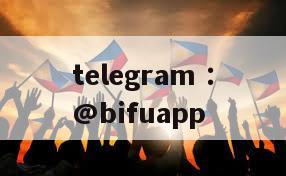In the Philippines, the third-party payment industry is undergoing an unprecedented transformation. GCash, as a leader in the industry, is leading the trend of this transformation with its unique innovation and foresight. Recently, GCash announced a major decision to enter the international market and gradually open up the registration and use of international SIM cards outside the Philippines. This move has undoubtedly injected new vitality into the third-party payment industry in the Philippines.
GCash, known as the Philippine version of "Alipay", has a large user base in the Philippines. However, in the past, the use of GCash was closely tied to the Philippine mobile phone number. Once the user moved abroad or the Philippine mobile phone number expired, GCash could no longer be used. In order to break this restriction, GCash, after obtaining approval from the Central Bank of the Philippines (BSP), launched an overseas version test, allowing Filipinos in Japan, Australia and Italy to register and use GCash without a Philippine SIM card.
The launch of this new service not only solves the usage problem of overseas Filipinos, but also further enhances the market competitiveness of GCash. Martha Sazon, president and CEO of GCash, said: "We want to improve our services so that customers can use international SIM cards and enjoy GCash services even when they are overseas." This move will undoubtedly further widen the gap between GCash and its competitor PAYMAYA.
Currently, the overseas beta version of GCash is only open to the first 1,000 users in Japan, Australia and Italy, but it is expected to be fully launched in the official overseas stable version later this year. At that time, overseas Filipinos can start registering GCash regardless of which country's SIM card they use to send money to their families at home, pay bills or purchase credit.

GCash's international expansion plan is not limited to this. It is revealed that the next development of GCash will be able to be used for SIM card registration in countries such as Japan, South Korea, Singapore, Malaysia and Qatar, and will also cover EU countries such as the United Kingdom, France, Germany and Italy. This extensive international layout will undoubtedly further consolidate GCash's position in the global payment field.
Observers point out that GCash is so anxious to expand its international market because of the huge amount of foreign exchange remitted back to the Philippines by the large group of overseas Filipino workers. According to the Central Bank of the Philippines, the U.S. dollars remitted by overseas Filipino workers (OFW) to the country hit a record high of $36.14 billion in 2022. This huge remittance income accounts for 8.9% of the country's gross domestic product (GDP) and 8.4% of the gross national income (GNI). Compared with the cumbersome procedures and relatively expensive fees for cross-border remittances at bank counters, cross-border e-commerce and electronic payments have a huge room for growth.
Against this background, GCash's international expansion is undoubtedly of far-reaching significance. It not only provides more convenient and efficient financial services for overseas Filipinos, but also opens up new development space for the third-party payment industry in the Philippines. As a leader in the industry, GCash is leading the Philippine third-party payment industry into a new era with its unique innovation and foresight. As a partner and brand extension of GCash, BiPay will also play an important role in this transformation, bringing convenient and affordable financial services to more users.

 bifu pay
bifu pay





发表评论
发表评论: